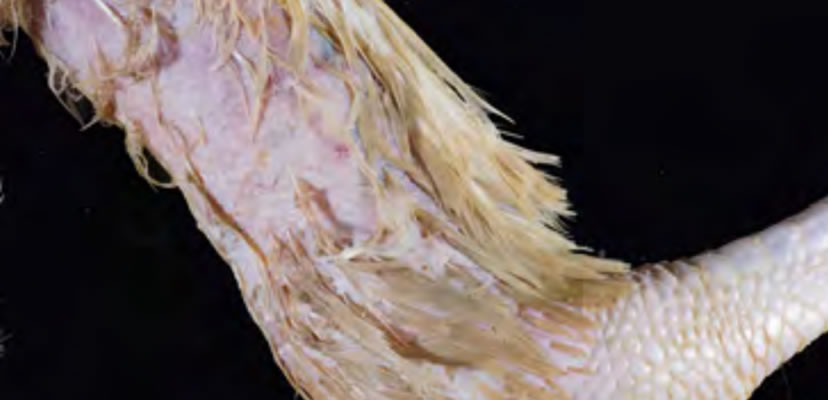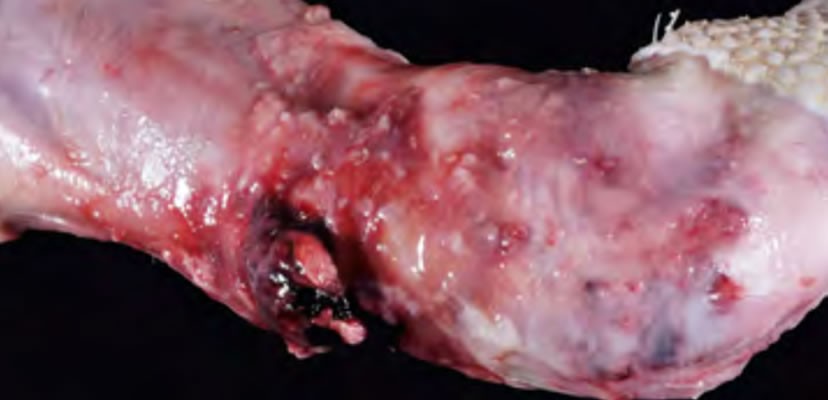- Issue:Tags:
Arthritis can cause significant losses for chicken and turkey producers— anywhere from 5 to 40 percent of a flock can be lost when a reovirus that causes arthritis takes hold. A University of Minnesota research team has spent the past seven years developing tools producers can use to control this nagging and sometimes devastating condition.
Turkey arthritis reovirus (TARV) and its distant genetic cousin, chicken arthritis reovirus, make birds lie down, reluctant to move, or limp on one or both legs. In turkeys, the condition appears as early as 10 to 12 weeks of age and its severity peaks at 15 to 16 weeks of age. The disease primarily afflicts tom (male) turkeys, and research has found little evidence of disease transmission between chickens and turkeys. The U of MN team of Sagar Goyal, PhD, MSc, BVSc, Sunil Kumar, BVSc & AH, PhD, MVSc, and Rob Porter, DVM, PhD, DACVP, has greatly expanded our knowledge. For instance, they’ve proven that arthritis in commercial poultry herds is caused by the reoviruses, which have the ability to mutate into different strains. We now know that turkey poults can be infected as early as one week of age, and they can easily transmit the virus to their penmates. The team has found that the reoviruses survive in barn drinkers for up to two weeks and in litter for up to nine days. And their research has found that five readily available disinfectants are highly effective in controlling these arthritis- causing viruses.
So, what remains to be done? The reovirus team is working to improve the speed and accuracy of current testing methods, developing a turkey-specific test for detecting reovirus antibodies, i.e., the bird’s immune response, and sequencing the complete genome of the TARVs to identify strain differences that will guide vaccine development.


